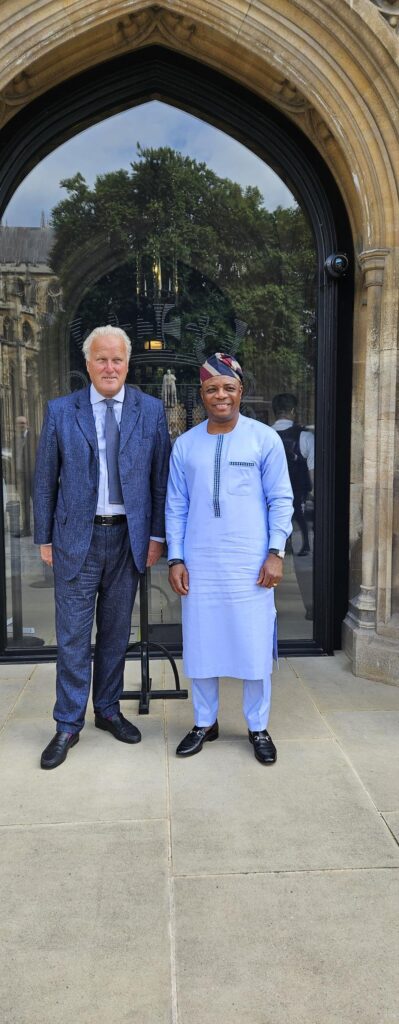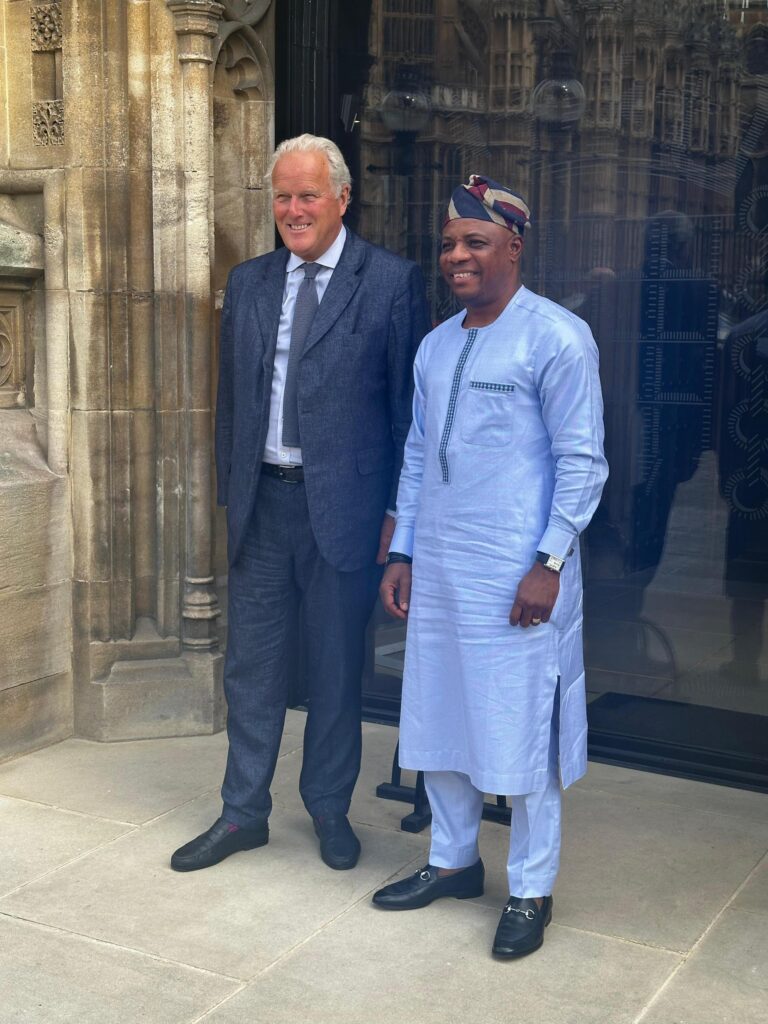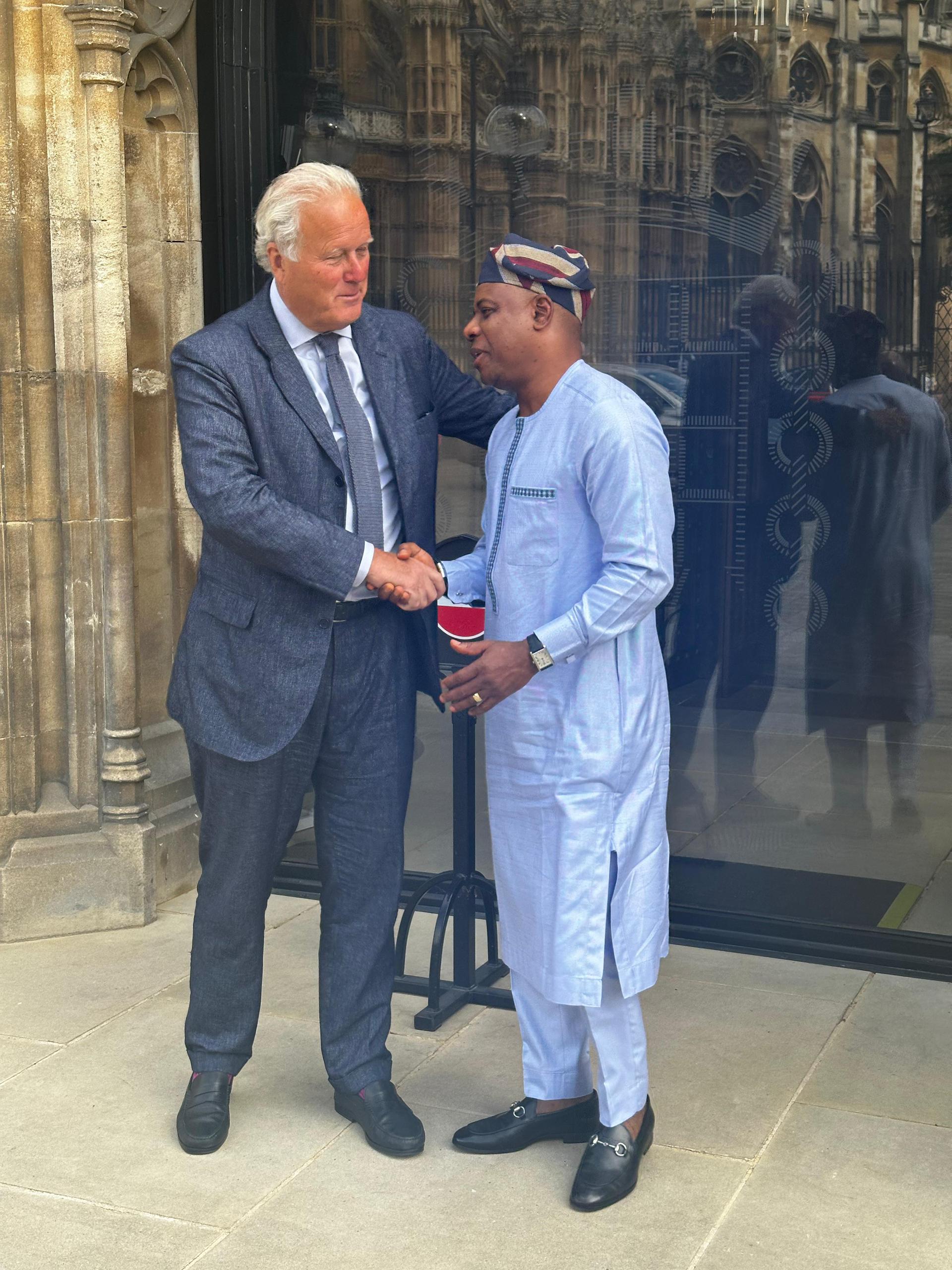By Clara Dabo
Nigeria has taken a significant step towards strengthening its defence and industrial cooperation with the United Kingdom, following a high-level meeting between the Permanent Secretary of the Ministry of Defence, Ambassador Gabriel Tanimu Aduda, and Lord Jonathan Marland, Chairman of the Commonwealth Enterprise and Investment Council (CWEIC), at the British Parliament’s House of Lords.
The meeting, which took place amid growing global security concerns, focused on deepening strategic partnerships in defence, enhancing industrial collaboration, and revitalizing Nigeria’s domestic defence manufacturing capacity.
Ambassador Aduda, a former Governor of OPEC and current top defence technocrat, used the occasion to spotlight the urgent need for the transformation of the Defence Industries Corporation of Nigeria (DICON) the country’s principal defence production agency.
He stressed that for DICON to attract credible global partners and investors, especially Foreign Direct Investment (FDI), it must undergo structural reforms that distinguish its regulatory functions from its commercial operations.
“DICON holds enormous potential as a regional defence manufacturing hub,” Aduda stated. “However, unlocking that potential requires clear governance structures, operational transparency, and an environment conducive to innovation and private sector engagement.”

According to a statement released by the Ministry’s Principal Superintendent of Press, Patience Ituke, the Permanent Secretary also highlighted the government’s readiness to reposition DICON as a commercially viable and investor-attractive entity capable of producing defence solutions not only for Nigeria but for the broader West African region.
Lord Marland, in response, reaffirmed the UK’s willingness to support Nigeria’s defence industrial transformation through strategic partnerships that enable technology transfer, joint manufacturing, and capacity building.
He noted that CWEIC, which connects Commonwealth governments with global investors, would play a pivotal role in linking UK defence and security companies with Nigeria’s evolving defence infrastructure.
Discussions at the meeting also explored opportunities for collaboration in specialized military training, infrastructure investment, and co-production ventures between Nigerian and British firms.

Both sides expressed strong interest in creating sustainable frameworks for cooperation, with a shared vision of enhancing Nigeria’s defence self-sufficiency and boosting regional security architecture.
The meeting concluded with a joint resolution to establish a follow-up mechanism that will bring together key public and private sector stakeholders from both countries.
This framework will include roundtable policy discussions, technical needs assessments, and business-to-business engagements designed to lay the groundwork for long-term, mutually beneficial defence industrial partnerships.
This strategic dialogue comes as Nigeria intensifies efforts to reposition itself as a leader in indigenous defence production and innovation as stakeholders believe that global partnerships of this nature are critical for fostering technological advancement, improving national security, and driving economic diversification.
Ambassador Aduda’s visit also underscores the importance of visionary leadership and proactive diplomacy in shaping Nigeria’s future in defence industrialization.
A respected diplomat and recipient of the African Achievers Award, Aduda continues to play a leading role in advancing Nigeria’s defence reform agenda on the global stage.
